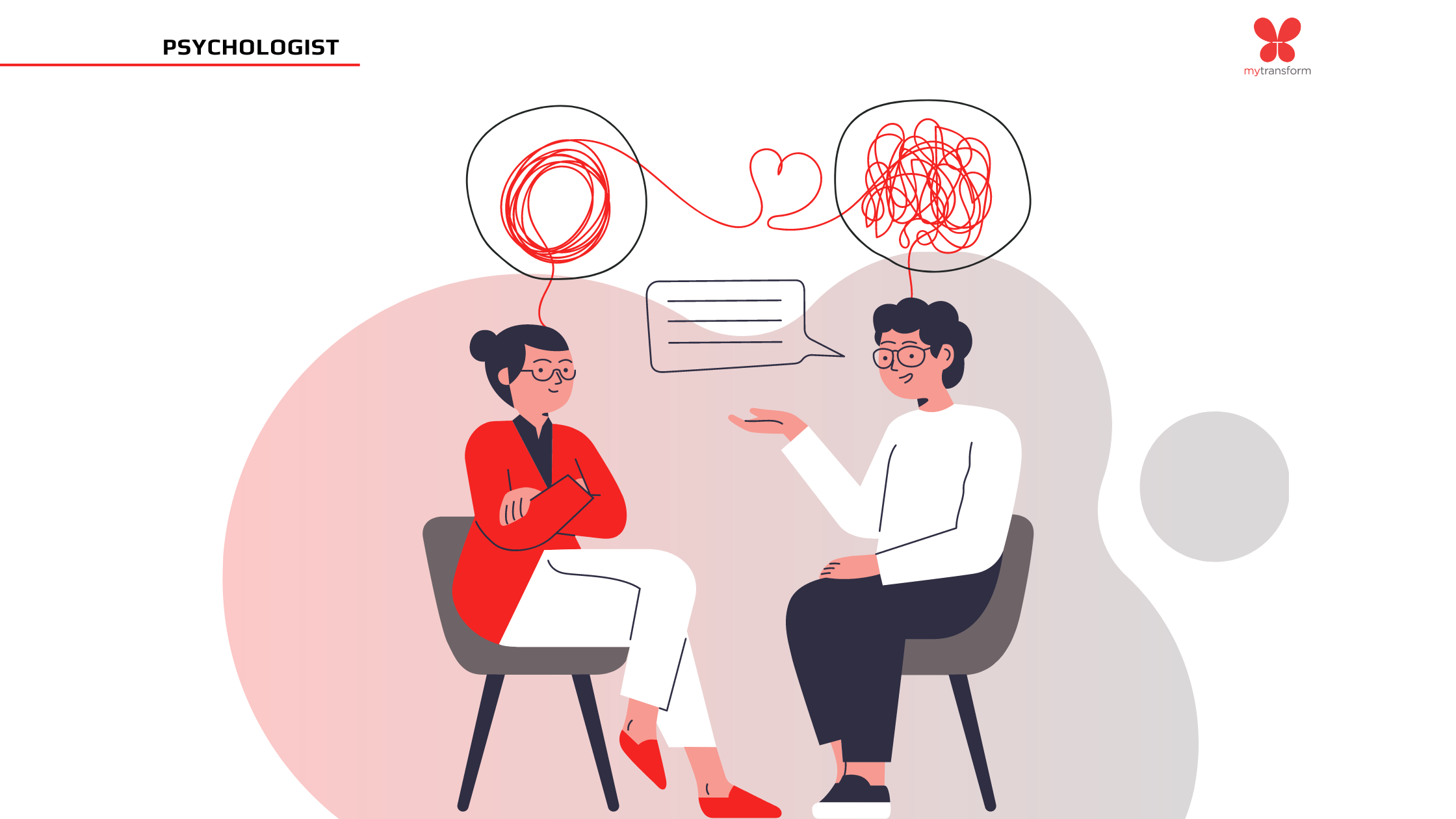Why the Best Psychologist in Delhi Can Change Your Mental Well-Being
Why the Best Psychologist in Delhi Can Change Your Mental Well-Being
Blog Article
Psych Therapy: A Comprehensive Guide to Outcomes and methods

Cognitive-Behavioral Treatment
Cognitive-Behavioral Therapy (CBT) is an extensively used psychotherapeutic approach that concentrates on identifying and changing dysfunctional reasoning and behavior patterns. Established in the 1960s by Aaron T. Beck, CBT incorporates cognitive and behavior theories to deal with different psychological health issues, including anxiety, stress and anxiety, and stress-related problems.
CBT is identified by its organized, goal-oriented nature. Treatment typically involves a collective process in between the specialist and customer, where particular problems are determined, and practical methods are established to address them. Methods such as cognitive restructuring, direct exposure treatment, and skill-building workouts are commonly utilized. Cognitive restructuring includes tough and changing adverse idea patterns, while direct exposure therapy aims to lower worry and anxiousness with progressive direct exposure to been afraid items or circumstances.
Evidence-based research study supports the effectiveness of CBT for a large variety of emotional conditions - Best Psychologist in Delhi. Its focus on ability purchase and self-help strategies empowers customers to proceed progression individually after treatment wraps up. The flexibility and performance of CBT have made it a cornerstone in contemporary psychotherapeutic practice
Psychodynamic Methods
Rooted in the early concepts of Sigmund Freud, psychodynamic approaches concentrate on exploring the unconscious mind and its influence on behavior and feelings. These techniques aim to discover hidden thoughts and sensations that may be driving maladaptive actions and psychological distress. Central to this strategy is the idea of internal conflict, often stemming from unsolved past experiences, especially those from childhood years.
Therapists using psychodynamic methods utilize a number of essential approaches, including free association, where clients are urged to talk openly to reveal subconscious product, and desire analysis, which interprets the unrealized content of desires. Furthermore, the expedition of transference and countertransference dynamics within the therapeutic partnership is important. These interactions can supply insights right into the client's interior world and relational patterns.
Psychodynamic therapy is usually longer-term compared to other modalities, using a deep and thorough understanding of the person's mind. Research suggests that it can be particularly efficient for intricate mental health and wellness issues, such as character disorders and chronic clinical depression. By promoting self-awareness and emotional understanding, psychodynamic therapy seeks to bring subconscious material to consciousness, allowing people to accomplish meaningful and long lasting modification in their lives.
Humanistic Methods
Structure on the foundations laid by psychodynamic methods, humanistic strategies provide a distinct point of view concentrated on specific possible and self-actualization. Originating in the mid-20th century, these strategies focus on the inherent goodness and development possibility of people, emphasizing a holistic sight of human experience. Trick figures such as Carl Rogers and Abraham Maslow more information have actually substantially affected this restorative approach, which includes methods like client-centered treatment and Gestalt therapy.
Client-centered treatment, created by Rogers, plays a critical function in humanistic techniques. The therapist's duty is even more of a facilitator than an authority, urging clients to harness their inner sources for healing.
Gestalt treatment, an additional vital humanistic method, highlights existing minute understanding and the combination of mind and body. By concentrating on the "present moment," clients obtain higher understanding right into their current feelings and behaviors. Techniques such as role-playing and assisted visualization are typically employed to assist customers get a deeper understanding of themselves, inevitably causing improved self-awareness and fulfillment.
Integrative Therapies
Integrative therapies represent a synthesis of numerous restorative strategies tailored to satisfy the unique demands of each customer. This method acknowledges the intricacy of human psychology and the multifaceted nature of mental health concerns. By incorporating aspects from various colleges of psychiatric therapy-- such as cognitive-behavioral treatment (CBT), psychodynamic therapy, and humanistic techniques-- integrative treatments use an even more alternative and flexible treatment paradigm.
Professionals of integrative therapy assess each client's particular demands, signs and symptoms, and personal background to develop a customized therapy strategy. This individualized approach boosts the capacity for therapeutic success by addressing the source of emotional distress and advertising overall wellness. Techniques may include mindfulness workouts, cognitive restructuring, and emotional handling, each chosen to target various aspects of the customer's issues.
In addition, integrative therapies emphasize the healing partnership, watching the client-therapist Read Full Article bond as an important part of effective treatment. This relationship fosters a helpful atmosphere where customers really feel risk-free to check out and resolve their problems. The adaptability of integrative therapies makes them appropriate for a wide series of conditions, including anxiousness, anxiety, trauma, and interpersonal troubles, thereby increasing their applicability and performance in diverse scientific setups.

Determining Treatment Results
Evaluating the effectiveness of psychiatric therapy is critical for both clients and medical professionals to guarantee that the treatment is yielding the preferred outcomes. To achieve this, various methods and devices are used to measure treatment end results methodically. Standardized evaluation tools, such as the Beck Depression Stock (BDI) and the Generalized Stress And Anxiety Disorder 7 (GAD-7), provide measurable information on sign extent and changes over time.
Along with standard devices, qualitative approaches like client self-reports and clinical interviews use useful insights right into the individual experiences and regarded development of customers. Consistently set up analyses, normally at the start, omphalos, and end of treatment, help in tracking the trajectory of improvement or determining locations requiring modification.
End result measurement is not limited to symptom decrease; it also incorporates functional enhancements in day-to-day life, such as better social connections, boosted job performance, and improved general health. Modern innovations in electronic health have actually introduced mobile applications and on-line systems that help with real-time surveillance and comments, further improving the assessment process.
Ultimately, a detailed approach to measuring therapy outcomes makes sure that healing interventions are reliable, reliable, and tailored to meet the individual needs of customers, thus optimizing the total therapeutic experience.
Final Thought
Psychiatric therapy provides a multifaceted variety of methods targeted at dealing with certain mental health and wellness problems and boosting overall health. Cognitive-Behavioral Therapy and psychodynamic approaches target dysfunctional thoughts and unconscious impacts, specifically. Humanistic strategies concentrate on individual development and self-actualization, while integrative therapies incorporate numerous methods for customized therapy plans. Examining treatment end results with qualitative methods and standard assessments makes sure an extensive understanding of his comment is here efficiency, ultimately assisting clients toward enduring psychological health improvements.
From the structured strategy of Cognitive-Behavioral Therapy (CBT) to the deep exploration of the unconscious in psychodynamic therapy, each technique brings one-of-a-kind benefits. Its emphasis on ability procurement and self-help strategies equips clients to continue progress individually after treatment concludes (Best Psychologist in Delhi). Trick numbers such as Carl Rogers and Abraham Maslow have dramatically affected this therapeutic method, which incorporates techniques like client-centered treatment and Gestalt therapy

Report this page